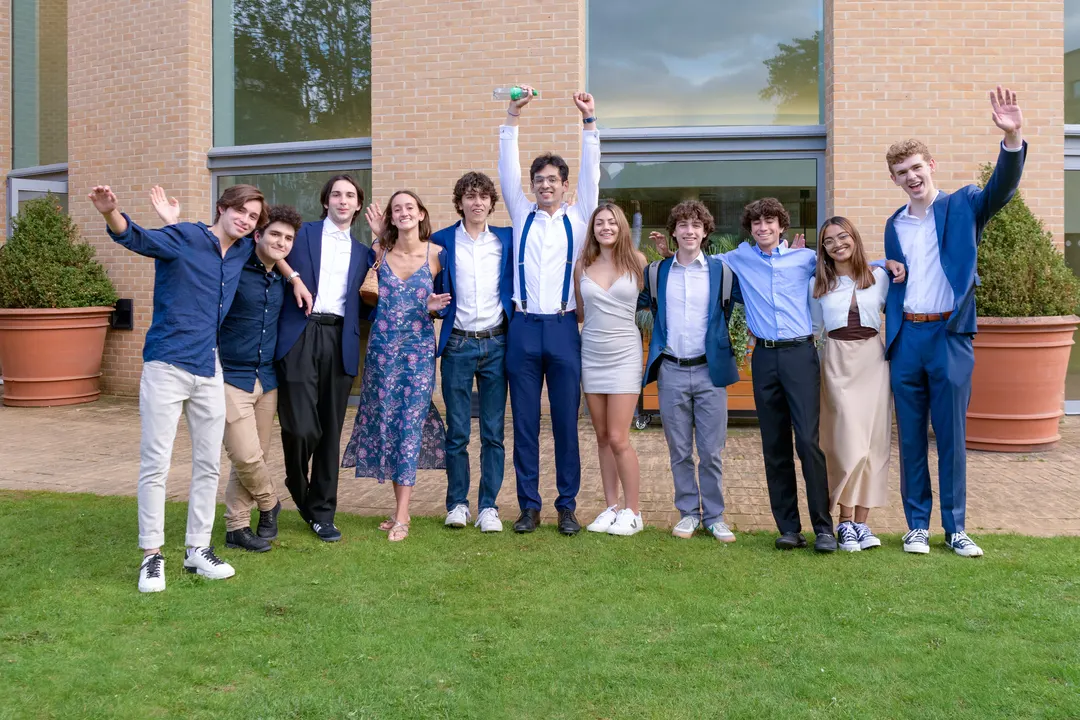How Educators Can Maximise the Impact of Careers Education with Limited Time

We recently asked educators from our Heads of Futures network to name the biggest challenges they were facing. Unsurprisingly, lack of time was at the top of the list.
As educators, there are a lot of different pulls for your time, and it can be difficult to prioritise and juggle all the responsibilities. While we can’t offer you a magical time generation machine (we’re working on it!), there are some practical tips which will help you get the most out of your school’s careers provision.
Stop, Start, Continue
This deceptively simple tool is one we have used in our own team to regularly assess what we are doing, and challenge ourselves to find better and quicker approaches. Recognising where we are spending our time, and evaluating what is working and what is not, is vital to efficient time-management.
The tool is simple – we divide everything into three categories: continue, stop or start.
Each quarter, members of our leadership will write down everything they do and divide these into three categories.
1. Continue
These are the things we want to carry on doing using the approach we currently employ. These are the things that just work. It’s efficient and the best use of our time for the goals and priorities we have! (If it isn’t broke…)
2. Stop
These are the things that we are going to stop doing. Perhaps, they are not delivering the results we want, or because there are more efficient ways to get the same outcome. Think about any meaningless or inefficient tasks that take up a lot of unnecessary time or are inefficient.
3. Start
These are the things that we do not currently do, but want to start employing. These will be tools which will help us be more efficient and achieve what we want.
The first step is taking time to investigate new methods and available tools which can help you complete tasks more efficiently. It might be really useful to block out some dedicated time (once a month) to explore these tools. Although it might seem like you are adding another thing to your to-do list, becoming more efficient will free up time and headspace for the more important aspects of your role.
Consider how you could use AI tools like ChatGPT to help conduct more efficient research for the benefit of your students. You might use this tool, for example, to research new career trends and help provide more tailored guidance to students. Using AI tools opens up a whole world of possibilities, allowing you to support students without having to invest hours in research.
Another great idea is to sign up for education newsletters. Newsletters can give you high quality, regular and easily-digestible information on the key developments in the sector. This will help you to keep abreast of the latest trends and insights in the most time-efficient way.
Keeping up-to-date doesn’t have to be tedious and laborious, and there are lots of options when it comes to newsletters. The Wonkhe newsletter, for example, is an excellent overview of what’s happening in the UK Higher Education sector.
Our very own Futures Digest is also trusted by careers professionals in the UK and abroad as a reliable source of insights and updates on all things careers and higher education.
Share Best Practice
It is well-known that a problem shared is a problem halved! This is certainly true when it comes to reducing workloads. Sharing best practices with other educators, either within your school or outside of it, can be an excellent way to benefit from pooled careers resources.
Engaging in dialogue with fellow educators gives us an opportunity to bring new ideas to the table, and learn about more time efficient approaches to tasks. We all have enriching and diverse experiences we can exchange with each other to find innovative approaches. You never know, someone else might have the perfect hack that saves you hours!
Our Heads of Futures network, for example, is quick and free to join, and offers you instant access to a global community of like-minded educators – we’d love to see you there!

Evaluate, Iterate, Improve
A key factor in maximising the efficiency of your career provision is to constantly assess what is working, what is not working, and tweak accordingly.
Many careers advisors ask their students to complete the OxBright Career Test at the start of the academic year to help their cohorts focus their thinking about the best careers for them. Having an idea of which careers students are interested in will enable you to easily spot areas where provision could be improved.
We emphasise the importance of evaluation for students, but it equally applies to educators. Take the time to regularly evaluate what students are most interested in career-wise, and identify gaps where provisions could be stronger. Having a tailored and specific approach will ensure your precious time is devoted to places where it will achieve the maximum impact!

By Jo Cruse
As our Head of Schools, Jo brings a wealth of experience to the team. Her career in education includes a tenure as a teacher at one of the UK’s leading schools, where she also served as a university admissions advisor. Having held senior leadership roles in various educational organisations, Jo is deeply committed to empowering young people to reach their full potential. She is a member of the Founders4Schools Educational Impact Council and a Fellow of the Royal Society of Arts.
Looking for a truly international summer school?
Recommended articles
Demystifying the UK University Application Process for Educators
The UCAS applications process for UK universities can appear daunting for students and teachers alike. With that said, educators play an important role in students’ success with their university applications. As such, it is paramount that educators understand the UK...
How to Secure Strong References for Your UCAS Applications
References are a crucial component of your UCAS application, offering a holistic view of your potential as an applicant. Your application will ask for references who can testify to your potential as a student and what you have to offer the university or college...
A Day in the Life of a History Student
It’s been over three years since I first sent my UCAS application off to Oxford University, meeting the early submission deadline by a slither and breathing a sigh of relief. Now, as a third-year History finalist on the cusp of exams, I can safely say that these...


